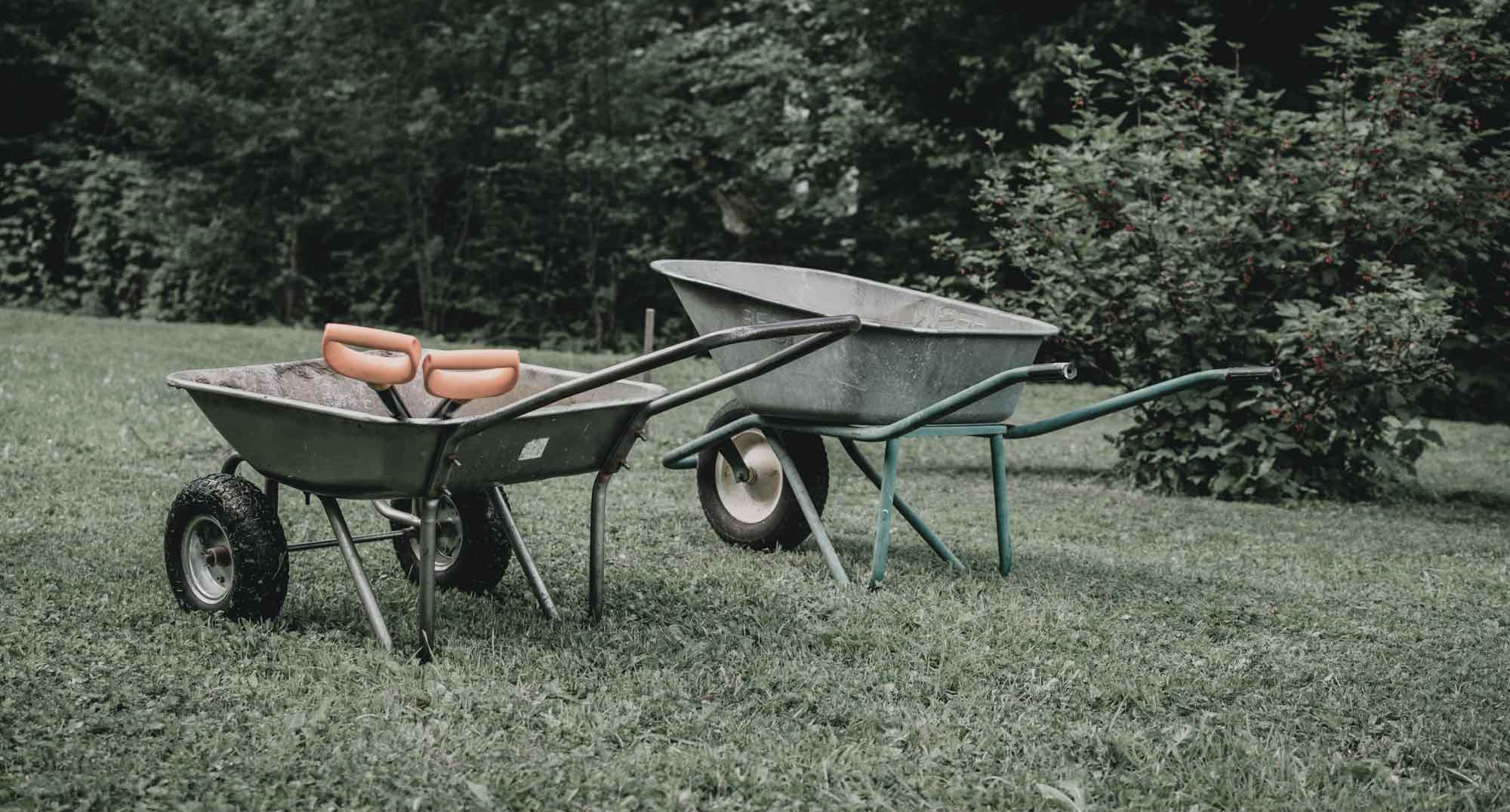KIM BARNES|GUEST
In my yard lay a stack of firewood that needed to be relocated. We recently purchased a fancy red wheelbarrow. It was strong and sturdy and perfect for the job at hand. I put on a pair of work gloves, grabbed a piece of wood in each hand, walked across my yard, and dropped the wood in the new location. My fancy wheelbarrow remained untouched while I made 40-50 trips carrying two pieces of wood at a time until all the wood was moved and neatly stacked.
What was the point of doing this job the hard way? It was not an efficient way to complete the task. Anyone could see that it made much more sense to load up my brand-new wheelbarrow with wood and get the pile moved in 3 or 4 trips. But here’s the thing. Moving the pile of wood wasn’t my only goal.
In an effort to improve my physical fitness, I was on a mission to log at least 10,000 steps per day. In service of that mission, I looked for things to do that would enable me to log steps while also accomplishing something. I parked far away from the entrance to the grocery store. I walked up my longish driveway to get the mail, even when I knew I’d be leaving soon for an errand and could just pick it up on my way out. I took the stairs instead of the elevator.
Efficiency is great when you need to make thousands of cars or grow acres of food. But sometimes efficiency gets in the way of the greater mission.
When the Most Efficient Path Isn’t the Best Path
If scientists created a pill that we could take three times a day and meet all our nutritional needs, that would be efficient. Imagine the time, money, and energy we could save. No more depending on favorable weather to grow food. No messy animal slaughterhouses. Grocery shopping and cooking would become unnecessary.
Now imagine how much we would lose by getting our nutrition that way. No more variety. No creativity in food preparation. God could have chosen to design our bodies in such a way that we could be sustained through a pill or a drink. But he made food tasty and beautiful with limitless ways to combine and enjoy. God’s mission for his creation transcends efficiency.
Americans love efficiency. We want maximum benefit with minimum effort, time, and money. We want things done as fast as possible, with as little effort as possible. We can’t be bothered with long wait times and lots of moving parts. The desire for efficiency has led to innovations like the assembly line and digital communication. We prefer our microwaves, drive-thru’s, and text messages. But sometimes, the most efficient path is not the best path. There are some goals that require that we expend resources disproportionate to the benefit. At least on the surface.
The Gospel Takes the Long Way
The plan of redemption doesn’t seem especially efficient. Surely God could accomplish his purposes with fewer moving parts and less mess. Instead, God’s plan includes such inefficient choices as:
- Choosing an elderly man with a barren elderly wife to be the father of many nations.
- Leading the Israelites out of Egypt only to spend 40 years wandering before finally entering the Promised land.
- Raising up countless judges and kings who failed to do what was right and led Israel through cycle after cycle of sin and repentance.
Surely the God of the universe could make all things new in less time, with less effort, less pain, and with fewer resources. But that’s not what He’s doing. Why not?
The stories God creates are filled with inefficiency. God’s goal isn’t getting things done fast with the fewest complications. Rather, the Gospel creates beautiful complexity where the struggle is often more important than the victory and where waiting is a critical part of growing in maturity.
The Gospel is counterintuitive. We live by dying (John 12:24-25), beauty emerges from pain and tragedy (Is. 61:3), and strength is found in weakness (2 Cor. 12: 9-10). God describes spiritual growth as fruit bearing (John 15:5-8 and Gal. 5:22-23), which takes time, patience, and waiting.
While we prefer a quick text message, God composes a beautiful letter he sends via snail mail.
But what if the gospel compels us to a different way? What if it’s better to go slow on purpose. What if taking the long way enables us to really understand the will of God and see the beauty of God?
While I was moving my pile of wood two or three pieces at a time, I noticed a neighbor watching me. I chuckled to myself. I wondered if he thought I was being foolish and wasting my time and energy. But just like he didn’t know that I had a mission beyond the simple relocation of wood, we don’t always know what God is doing. We want God to use the wheelbarrow, but He’s got other goals in mind as he carries His work in us to completion (Phil. 1:6).
Photo by Ēriks Irmejs on Unsplash

Kim Barnes
Kim has been married to Robert, a PCA teaching elder, for over 32 years. They have a daughter who is newly married and a son in college. After 20+ years of full-time homemaking and homeschooling, she enjoys mentoring women in the church and aspires to write more.

